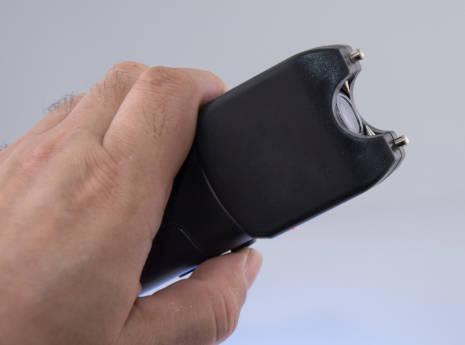Table of Contents
- Understanding Legal Requirements for Stun Guns in Different States
- Key Factors That Determine Whether a License or Permit Is Needed
- How to Obtain a License or Permit for Carrying a Stun Gun
- Tips for Complying with Local Regulations and Avoiding Legal Issues
- Closing Remarks
Understanding Legal Requirements for Stun Guns in Different States
When it comes to stun guns, legal requirements can vary significantly from one state to another in the U.S. Some states classify these devices as concealed weapons, which means you may need to obtain a license or permit to carry one legally. For instance, states like New York and Hawaii enforce strict regulations that often prohibit civilian possession outright or require a formal licensing process. On the other hand, certain states such as Texas and Florida adopt more lenient laws, permitting stun gun ownership without any license for self-defense purposes. Understanding these local nuances ensures you stay compliant and avoid potential legal troubles.
Before purchasing or carrying a stun gun, it’s crucial to verify key legal points, including:
- Age restrictions: Most states require users to be at least 18 years old.
- Permitted locations: Certain public places like schools or government buildings may prohibit stun devices.
- Purchase regulations: Some states mandate background checks or registration for stun guns.
- Transportation laws: Rules may vary on how the stun gun should be carried, e.g., concealed vs. open carry.
Always consult official state statutes or seek legal advice to ensure full compliance before acquiring or carrying a stun gun.
Key Factors That Determine Whether a License or Permit Is Needed
When determining whether a license or permit is required for stun guns, several critical factors come into play. Jurisdictional laws are at the forefront-each state or municipality can have vastly different regulations that govern possession, carrying, and usage. Some areas treat stun guns like any other self-defense tool and require no special documentation, while others categorize them alongside firearms, demanding rigorous licensing procedures. Additionally, the intended use of the stun gun-whether for personal defense, professional security, or recreational purposes-can influence the regulatory stance. Understanding local legislations and how these tools are classified under criminal or weapon statutes is essential to avoid legal pitfalls.
Beyond geography and purpose, specific factors such as the age of the owner, carry restrictions, and type of stun gun (e.g., handheld vs. stun baton) also contribute to licensing requirements. Some jurisdictions may allow stun guns only to individuals above a certain age or those who have undergone safety training. Moreover, carrying a stun gun openly versus concealed can invoke different permit needs. Key elements often considered include:
- Classification of stun guns within local weapons laws
- Mandatory background checks or certifications
- Special permits for carrying in public spaces
- Restriction zones like schools, government buildings, and airports
How to Obtain a License or Permit for Carrying a Stun Gun
Navigating the legal landscape to carry a stun gun involves understanding local regulations, as requirements can vary widely between states and municipalities. Generally, obtaining authorization includes submitting an application to the appropriate law enforcement agency or government department. This process may involve background checks to ensure you do not have disqualifying criminal records, and in some cases, completing a safety training course to demonstrate responsible handling of the device. Be prepared to provide identification documents, fill out detailed forms, and, depending on the jurisdiction, pay a processing fee.
Here are some key steps typically involved in acquiring a license or permit:
- Research Local Laws: Verify if a stun gun permit is required in your area, as some places allow possession without a license.
- File an Application: Submit a formal request to the relevant authority, such as the police department or state licensing office.
- Complete Background Checks: Authorities will usually conduct criminal and mental health screenings.
- Undergo Training (if mandated): Attend a class or complete an online course on safe stun gun use.
- Wait for Approval: Processing times can vary, so plan accordingly before carrying your device.
Tips for Complying with Local Regulations and Avoiding Legal Issues
When considering the ownership or use of a stun gun, staying well-informed about your jurisdiction’s specific statutes is crucial. Local laws can differ dramatically, not only between countries but even from city to city. To prevent running into legal troubles, you should start by checking official government websites or consulting legal professionals who specialize in weapons law. Pay particular attention to age restrictions, permitted locations for carrying, and any requirements for registration or licensing. Keeping documentation up to date and easily accessible can also help demonstrate compliance during any encounters with law enforcement.
Proactive steps include:
- Regularly reviewing updates to local and state legislation regarding stun guns
- Attending certified training sessions or courses where available to learn proper use and legal boundaries
- Maintaining transparency by informing local law enforcement or obtaining necessary permits if required
- Storing and transporting the device safely and discreetly to avoid misunderstandings or accusations of unlawful intent
By implementing these practices, you reduce the risk of fines, confiscation, or more severe penalties, ensuring your self-defense tool remains a benefit rather than a liability.
Closing Remarks
In conclusion, whether or not you need a license or permit to own or carry a stun gun largely depends on your location’s specific laws and regulations. It’s essential to thoroughly research local, state, and federal rules before purchasing or using a stun gun to ensure you stay compliant and avoid any legal trouble. Remember, responsible ownership goes hand in hand with understanding the legal framework surrounding these devices. Stay informed, stay safe, and always prioritize legal adherence when considering a stun gun for personal protection.Check Our Other Blogs
- StunGun – Your Trusted Source for Stun Guns, Laws, and Self-Defense Tips
- PepperSprayLaws – Your Trusted Resource for Pepper Spray Information
- StunGunLaws – Your Trusted Guide to Stun Gun Legality and Safety



